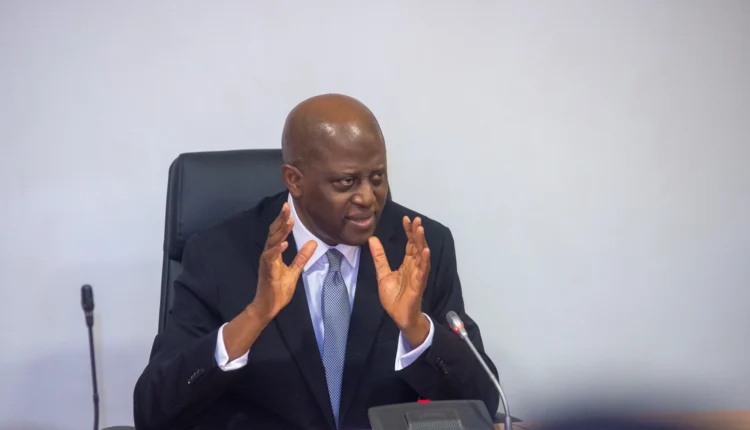Central Bank of Nigeria (CBN), said on Tuesday that eight Deposit Monetary Banks (DMB) have successfully met the new minimum capital requirements of between N500 billion and N200 billion, stipulated for their licenses.
In 2024, the apex bank came out with directives to the banks to recapitalise, with a benchmark of N500billion with those with international connections and N200billion with domestic operations, with a deadline fixe for March 2026 deadline, an exercise that was last done in 2004 when banks were ordered to ramp up their capital base to N25 billion by January 1, 2006.
Olayemi Cardoso, CBN Governor, who made the revelation at the conclusion of the two-day Monetary Policy Committee (MPC) meeting, in Abuja, said many banks had made significant progress in strengthening their capital base to align with the new regulatory threshold.
“The MPC noted that eight banks have fully met the recapitalisation requirements, while others are making progress towards meeting the deadline,” Cardoso said.
Under the ongoing recapitalisation programme launched in March 2024, the apex bank adopted a distinctive definition of minimum capital base, in addition of paid-up share capital and share premium, excluding other reserves and retained profits.
The distinctive definition implied that nearly all banks have to raise new capital, despite the fact that most banks have shareholders’ funds in excess of the minimum capital base.
Particularly, commercial banks with international licenses are required to have minimum share capital and share premium of N500 billion, while others with national banking licenses are required to have minimum share capital and share premium of N200 billion by the deadline of March 31, 2026.
The initial fund raising by banks had recorded huge success with most offers oversubscribed. Banks raised more than N2 trillion in 2024.
With less than nine months to the March 31, 2026 deadline, many banks are preparing to raise new capital, including some tier-1 banks that had participated in the 2024 round and were looking to close the remaining gap before the end of fourth quarter 2025.
The CBN said the recapitalisation policy was designed to ensure financial system stability, strengthen banks’ capacity to finance large-scale economic projects, and align with global standards of risk-based supervision.
Cardoso explained that the ongoing recapitalisation initiative is helping to reinforce the sector’s resilience, with key Financial Soundness Indicators (FSIs) showing sustained stability.
The Committee decided to retain all monetary policy parameters in order to consolidate the recent gains in inflation control and price stability. The benchmark Monetary Policy Rate (MPR) remains at 27.50 per cent, with an asymmetric corridor of +500/-100 basis points. The Cash Reserve Ratio (CRR) was maintained at 50.00 percent for deposit money banks and 16.00 percent for merchant banks. The Liquidity Ratio was also held steady at 30.00 percent.
This decision, the CBN Governor said, was taken to “sustain the momentum of disinflation and sufficiently contain price pressures,” noting that Nigeria has begun recording gradual improvement in inflation dynamics.
“We will continue to use every tool available—MPR, CRR, and ensuring an efficient foreign exchange market—to bring down inflation to significant levels,” he said.
“We are determined to ensure that we use all the different tools at our disposal. Inflation expectations will be managed in a way that the public understands the direction of the policy. We are committed to transparency,” he said.


